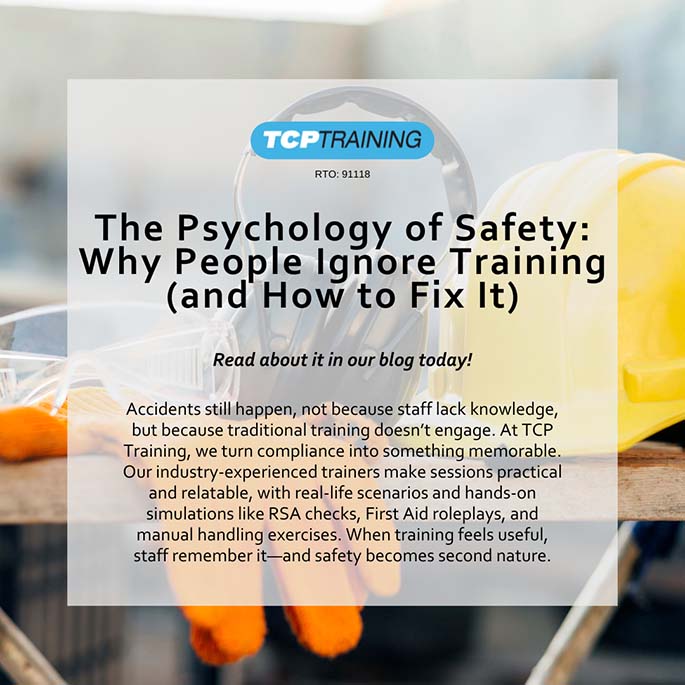The Psychology of Safety
Monday, November 10, 2025
Monday, November 10, 2025

Despite training, accidents and compliance breaches still happen.
The problem usually isn’t knowledge—it’s how people engage with training. If staff see it as a “tick-the-box” exercise, retention and application in real life become minimal.
Why People Switch Off During Training
Research shows people learn best when training feels human and relatable. That means:
At TCP Training, we know engagement is everything. That’s why we focus on:
When training feels useful, it sticks. Staff are far more likely to carry the lessons into daily work, making compliance second nature instead of a chore.
Want training that your staff will actually remember? Explore TCP’s engaging compliance courses today.